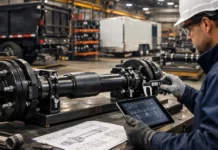AI’s positive impacts in the construction industry were highlighted in areas like decision-making, cyber security, and reporting, according to a study conducted by APM. The research involved over 900 project professionals from various sectors, including construction, engineering, and transport, and was carried out with the help of Censuswide.
Only 8% of the participants expressed concerns about the adverse effects of AI in construction. In comparison, 22% believed its impact would neither be positive nor negative—the majority of professionals viewed AI as a valuable time-saving tool.
The anticipated benefits of AI in the construction sector included improved decision-making processes, strengthened cyber security, more consistent and timely reports, and allowing construction industry professionals to focus on strategic aspects of their roles.
Cyber security enhancement, reliable and punctual reporting, and increased time allocation for essential tasks were key advantages emphasised by those favouring AI.
The latest insight revealed positive acceptance of AI’s impacts in construction and other industries. However, stressing the importance of adapting to technological advancements and updating skills to stay current.
Some professionals expressed concerns about AI in construction, citing issues like the disruptive implementation of new systems, decreased budgets due to AI costs, and potential job layoffs.
The insight also showed the current usage of AI in the construction industry, with almost a third of professionals indicating that their organisations already implemented AI in projects. Additionally, 43% had plans to utilise AI shortly, while only 24% stated they had no intention to use AI.
Among those using AI in construction, 83% of project practitioners reported that their roles had changed. The introduction of AI has prompted the need for skill training and adaptation to ensure desired improvements in project delivery.
































